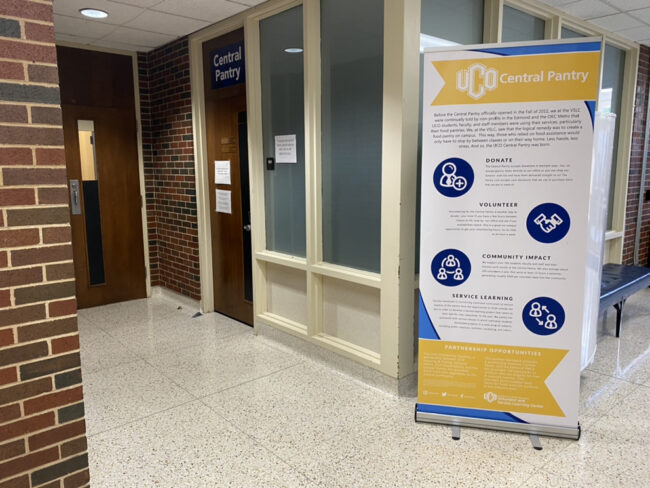Central Pantry Supports UCO Students Facing Food Insecurity
The Central Pantry at the University of Central Oklahoma is working to ensure that students facing food insecurity have access to essential items with its two locations on campus, where students can shop once a week for supplemental food and hygiene items.

To gain access, students must complete a client form that can be found on UCORE each school year. The form requires basic information such as name and household size, which helps the pantry track how many people are being served. Students, faculty, and staff are eligible to use the service with a valid UCO ID.
The Central Pantry offers a wide range of products, including canned meats, beans, vegetables, fruit, peanut butter, pasta, rice, ready-to-eat meals, snacks, drinks, condiments, and hygiene items. While the pantry strives to keep its shelves stocked, availability depends on donations.
In addition to offering food, the Central Pantry also provides opportunities for student involvement. Volunteers are recruited at the start of each semester, with applications for spring 2026 opening at the end of this fall.
“We can connect students with additional resources for food, utility assistance, clothing, and more throughout Edmond and Oklahoma City,” said Nicole Doherty, director of the Central Pantry.
With more than half of UCO students identifying as food insecure, usage of the pantry, which is affiliated with the Regional Food Bank of Oklahoma, has grown significantly in recent years.
In 2024, the pantry recorded about 4,200 check-ins, representing 10,100 people served based on household size. Monthly, the pantry typically sees between 800 and 1,400 check-ins, with demand slowing during summer or holiday breaks. According to Doherty, use has increased by 230% in the past five years.
With rising demand, Doherty emphasized that no student should hesitate to use the resource. “Our campus has over 55% of students who identify as food insecure,” she said. “This can range from chronic food insecurity to situational food insecurity.”
Said Doherty, “We want students to know that the pantry is a safe place to come shop for items they need to help them make it to the next meal or paycheck.”

